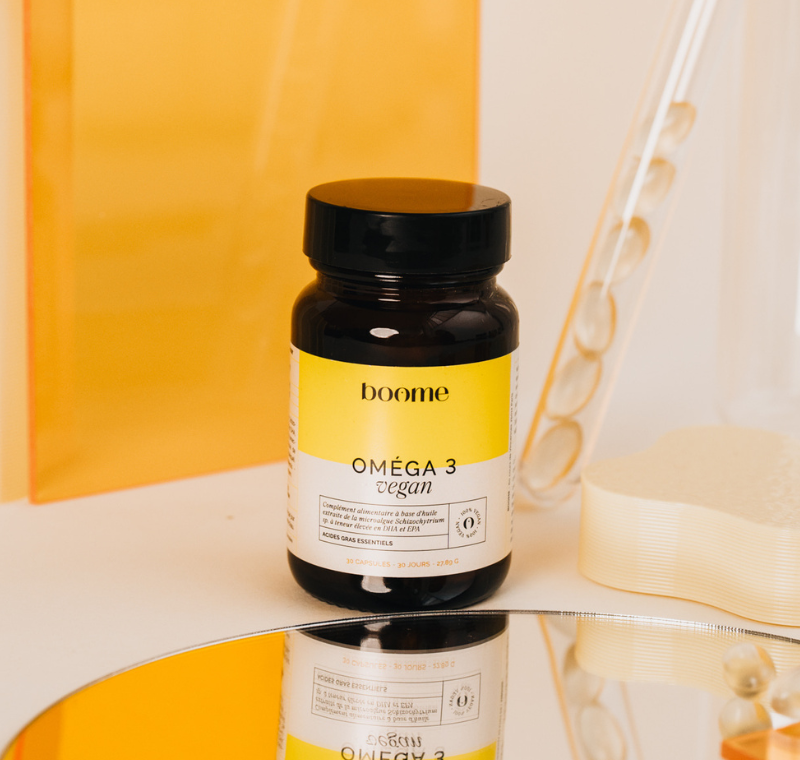Docosahexaenoic acid (DHA) and eicosapentaenoic acid (EPA) are essential fatty acids belonging to the omega-3 family. Omega 3s areessential fatty acidsto our health, acting positively on several issues: thefertility, depressionpostpartum, but also the'inflammation.
The benefits of omega-3s are as significant as they are varied. They are the ally of a healthy body and of sensitive, reactive, and lacking vitality.
A good Omega 3 status protects cognitive functions but also vision and cardiovascular health.
On the maternity journey:
A good essential fatty acid status has an impact on fertility and the cycle. Studies onOmega 3 and fertilityshow that they could improve women's pregnancy rates.[1]
Are you planning a pregnancy? Discover our range offood supplements for fertilitywomen and men.
Pregnant women have significant needs for DHA and EPA. Studies show thatomega 3 during pregnancyplay a role in its duration [2], thus reducing the risk of premature births.
DHA consumption by the mother contributes to the normal development of the eyes and brain of the fetus and the breastfed child.
Omega 3s may reduce scores associated with postpartum depression [3] and serve to boost cognitive functions, essential when you become a new mother and are overworked. Overwork, lack of concentration and memory related to fatigue can be supported by consuming Omega 3s.
Outside the maternity pathway:
Ideal for normal brain and vision development in adults, fetuses, and breastfed children. Omega 3s are therefore beneficial for memory and concentration, but also help reduce inflammation in our bodies.
According to several scientific studies, Omega 3 could also affect many aspects of cardiovascular function (inflammation, anticoagulation, etc.) and they could therefore reduce the risk of cardiovascular events. [4]
Omega 3s are essential fatty acids that are essential for beautiful skin. They have an impact on suppleness and elasticity and can thus prevent the multiplication of wrinkles by taking care of hydration and our hydrolipidic barrier. [5] They can be allies for reactive skin since their anti-inflammatory properties will calm overworked epidermis.
Health claims:
DHA contributes to normal brain function. The beneficial effect is achieved with a daily intake of 250 mg of DHA.
Maternal DHA intake contributes to the normal development of the eyes and brain of the fetus and breastfed child. The beneficial effect is achieved by consuming 200 mg of DHA daily, in addition to the recommended daily intake of omega-3 fatty acids for adults, which is 250 mg of DHA and EPA.






















